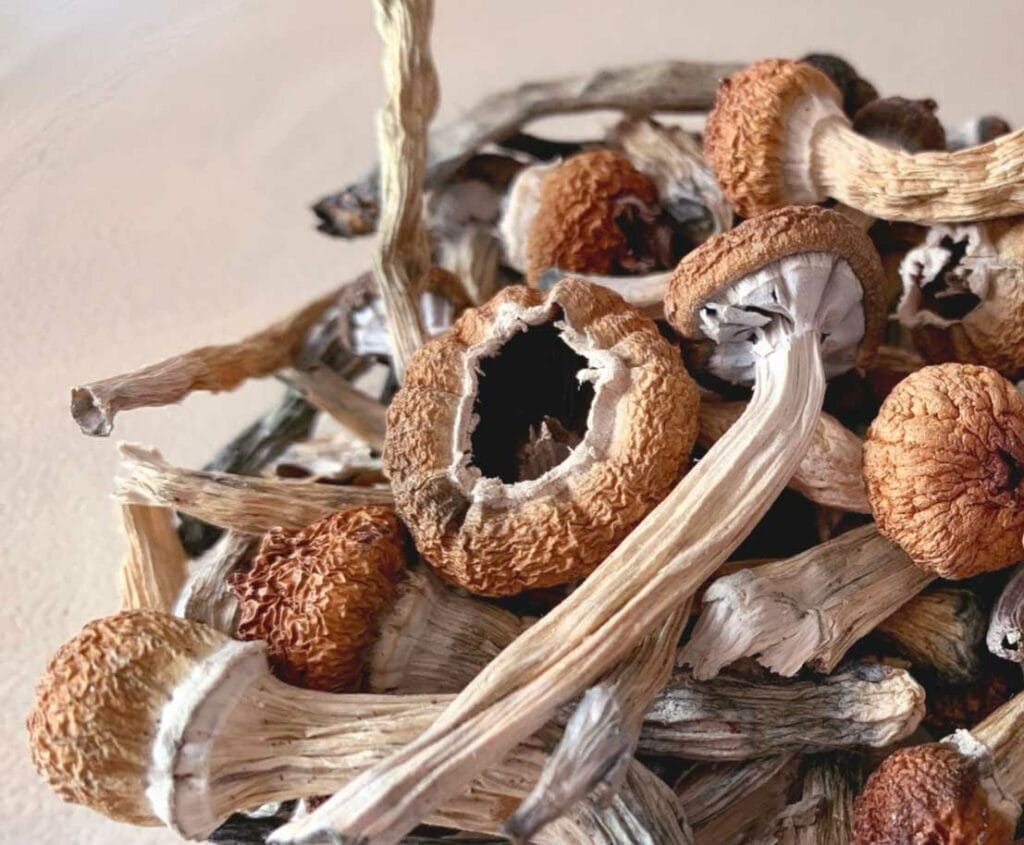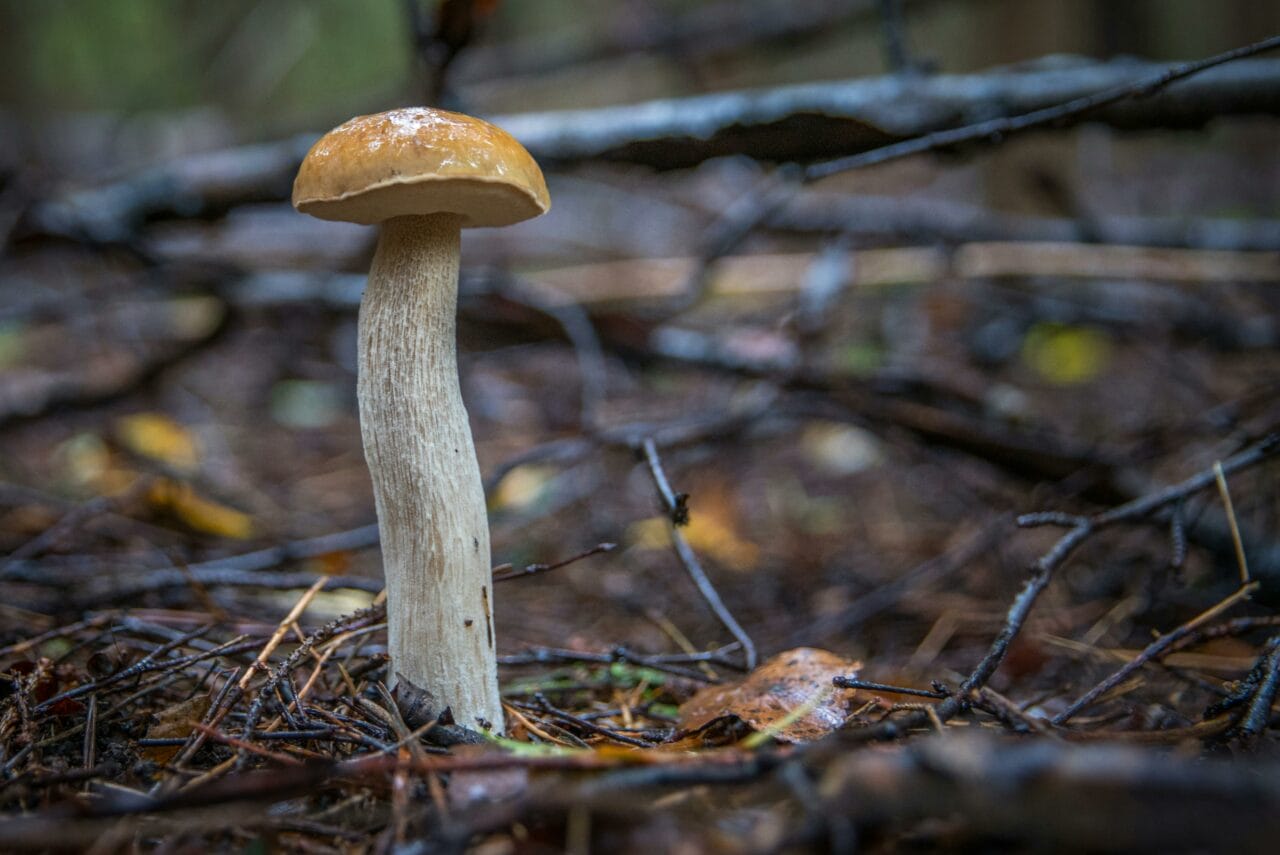As research into the impact of psilocybin on the human brain continues to evolve, scientists are consistently unearthing remarkable findings. A study from Washington University in 2023 demonstrated that psilocybin has the capability to reduce activity in the brain area responsible for memory and perception for an extended duration of more than a week. This sustained disruption is potentially associated with the mood-enhancing effects of the substance.
This recent breakthrough paves the way for mental health patients, broadening their spectrum of treatment options. The increased malleability of the brain, combined with mood-boosting effects, might possibly offer long-lasting relief compared to traditional medications. Additionally, it can be conveniently and cost-effectively procured from shrooms online.
[toc]
Key Takeaways:
- Desynchronization acts as a reset button, allowing individuals suffering from depression to establish healthier and more flexible neural pathways.
- It contributes to the treatment of depression, anxiety, PTSD, and addiction by fostering neuroplasticity and modifying neural networks.
- Patients with depression have reported that a single dose can improve positivity, mood, and behavior.
Comprehending Magic Mushrooms
These mushrooms are recognized for their psychoactive compounds, primarily psilocybin and psilocin, which can provoke altered states of consciousness. These changes can lead to visual and auditory hallucinations, perception shifts, and intense emotional encounters.
Over the centuries, these have been utilized in various cultural and spiritual practices and are often referred to as “shrooms,” “mushies,” or “hongos.”
The Psychedelic Substance
The most intriguing attribute of these mushrooms is their psychedelic substance. Upon ingestion, it converts into psilocin, which interacts with serotonin receptors (5-HT2A receptor). This interaction prompts changes in brain connectivity and perception, causing hallucinogenic effects and potential therapeutic advantages.
This psychedelic substance disrupts typical connectivity, fostering enhanced communication between previously isolated brain regions, promoting the formation of new challenging viewpoints and enhancing mental acuity. This temporary shift in consciousness allows for deep insights that can provide therapeutic benefits for conditions such as depression, PTSD, and anxiety.
This substance has been widely researched in a multitude of clinical trials, even receiving acknowledgment from Health Canada as a revolutionary medicine.
Recent Research on Brain Activity During and After Intake
A study conducted by the Washington University School of Medicine aimed to examine the immediate and extended neurobiological and psychological effects of psilocybin. The research concentrated on the influence of these substances on synaptic connections and the longevity of this effect.
Method
Healthy young adult participants were given psilocybin and methylphenidate on separate days and underwent regular MRI scans (approximately 18 times) before, during, in-between, and after each dosage.
Functional MRI (fMRI) was employed to monitor synaptic connections and activity at various stages. This enabled a comprehensive assessment of immediate and sustained brain network effects.
While in the scanner, participants performed a simple auditory-visual matching task. They executed this task accurately during the drug sessions.
Key Findings
- Immediate Alterations: There was a significant disruption in connectivity across cortical and subcortical networks, with changes over three times larger than those witnessed with methylphenidate.
- Desynchronization: A marked decrease in network synchronicity, particularly in the “default mode network,” was detected. This network, which comprises interconnected regions like the thalamus, basal ganglia, cerebellum, and hippocampus, is typically more active during self-reflection and mind-wandering than when concentrating on specific tasks.
- Task Impact: Despite the observed alterations in functional connectivity, participants’ responses during the auditory-visual matching task remained stable under the active substance. This indicates that the changes in functional connectivity are unlikely due to modified neurovascular coupling.
- Long-Term Effects: A sustained decrease in connectivity between the anterior hippocampus and DMN was noted for several weeks, but it returned to baseline after 6 months.
- Methylphenidate results in immediate changes that are less significant and less be beneficial to those who regularly experience intense emotional reactions or mood swings. The drug’s ability to alter the way the brain manages emotions could potentially be beneficial for individuals suffering from mental health conditions.
Brain Connectivity is Frequently Discussed
Dr. Joshua Siegel, a psychiatrist at Washington University School of Medicine in St. Louis and the primary author of the study, suggests that psilocybin promotes a more adaptable approach to brain connectivity. Enhancements in connectivity could potentially assist in managing depression. By boosting the brain’s adaptability, long-term cognitive changes could be enabled. This desynchronization might serve as a reset mechanism for individuals with mood disorders, encouraging healthier and more dynamic connectivity.
How Psilocybin Affects the Brain
The active compound alters an individual’s perception of time and space, and changes their sense of connection to their environment. Although these personal experiences typically dissipate quickly.
Psilocybin impacts cells that react to serotonin, a critical chemical messenger. It momentarily activates receptors in high-density areas, such as the medial frontal lobe, triggering long-lasting effects. This activation disrupts established pathways and motivates the formation of new connections.
Desynchronization was minimized when participants engaged in a basic word-picture matching task, as the default mode network was dormant during this task. This could clarify why reducing external stimuli—like wearing eye shades—can intensify involvement with the psychedelic experience.
Long-lasting Effects on Brain Disruption
Though the immediate impacts fade once the drug wears off, the said study found that disruptions in connectivity between the DMN and the anterior hippocampus—a region linked to memory and emotion—can last for several weeks.
This prolonged alteration could promote brain plasticity, potentially facilitating long-term changes in cognitive and emotional processing. These lasting experiences might contribute to the drug’s therapeutic potential.
Dr. Petros Petridis, a psychiatrist at NYU Langone Center for Psychedelic Medicine, asserts, “Psilocybin could offer an opportunity for transformation, which a therapist can subsequently help the patient navigate.”
Potential Advantages for Mental Health Disorders
The influence may also reach emotional processing, with alterations in the activity of brain regions involved in emotion regulation. For example, it can impact the amygdala, a region accountable for processing emotions, which could lead to changes in emotional reactions and mood.
These modifications in emotional responses could potentially benefit those who frequently undergo intense emotional reactions or mood fluctuations. The drug’s capacity to modify the brain’s handling of emotions could be advantageous for individuals grappling with mental health disorders.
and pleasure centers, heightened senses, and a profound sense of connection to others.Before purchasing, conduct thorough research and consult with a medical professional. While magic mushrooms have potential benefits, they also have risks, especially when combined with other substances or medications.
The Legal Status of Psilocybin in Canada
Despite promising research, psilocybin remains a Schedule III substance under the Controlled Drugs and Substances Act in Canada. Possession, production, and distribution are all criminal offences, barring a few exceptions for designated medical or scientific purposes.
However, Health Canada has granted exemptions for terminal patients and therapists in training to use psilocybin, marking potential shifts in policy and recognition of its therapeutic potential.
Despite these developments, it is crucial to adhere to the law and consult with a healthcare provider when considering psilocybin for therapeutic use.
Conclusion
The use of magic mushrooms in mental health treatment is a promising field, although it is still in its early stages. It is important to remember that while they may have potential benefits, they also carry risks. Always consult with a healthcare professional before beginning any new treatment regimen.
and stimulated senses.Brazilian Psilocybe Cubensis This strain, native to Brazil and some South American countries, is an ideal choice for those new to magic mushrooms. Expect feelings of joy, heightened awareness, enhanced creativity, and tranquility. Apart from dried psilocybin mushrooms, magic mushrooms can also be consumed in the form of edible shroom products, shroom tea, and more. Check out these convenient options available for purchase:
- Wonder – Birthday Cake Chocolate Bar
- Wonder – 3000mg Cherry Cola Gummies
- Bright Future – 3000mg Dark Chocolate & Sea Salt
Online Magic Mushrooms: A Potential Solution for Anxiety, Depression, and PTSD
Recent studies have shed light on how the active compound in Psilocybe cubensis affects the brain. Disruptions lasting a week can lead to a temporary shift in consciousness. This psychedelic experience may provide profound insights and offer relief for conditions like depression, PTSD, and anxiety.
Are you seeking a reliable source to buy shrooms online in Canada? Mushroom Coffee Canada is committed to enhancing mental well-being by providing high-quality magic mushrooms as a potential therapy for anxiety, depression, and PTSD. We strive to harness the remarkable attributes of these fungi with our carefully curated selection of online magic mushrooms.
Frequently Asked Questions
Can Psilocybe mushrooms be mixed with antidepressants for better results?
At present, there’s insufficient evidence to validate any harmful interaction between antidepressants (SSRIs or others) and Psilocybes. The active compound in Psilocybes doesn’t appear to increase the risk of serotonin syndrome when combined with a single antidepressant. Most recent clinical studies with shrooms either ask participants to gradually reduce their SSRIs or exclude those taking them from the study.
Can you microdose Psilocybe mushrooms?
If you’re hesitant about experiencing the full psychedelic effects of dried shrooms, microdosing might be a viable option.
- Procurement and Preparation: Obtain mushrooms and pulverize them into a fine powder.
- Determining the Dose: Approximately measure 0.1 to 0.3 grams (100-300 mg) of the dried product.
- Setting up a Dosing Schedule: Adopt a regular routine, such as ingesting the dose every three days or following a cycle of two days on, one day off.
- Measurement and Consumption: Use a precision scale for accurate measurements and contemplate taking the dose on an empty stomach to enhance absorption.
- Monitor and Adjust: Keep a log of your experiences and adjust the dosage or timetable based on your personal observations.
Is it safe to buy magic mushrooms online for therapeutic purposes?
Online purchasing is considered safer than buying from potentially questionable sources.
- Make sure you have exhaustive information about the products, including their source and quality. Reliable sellers offer lab test results or other forms of validation to assure the authenticity and purity of their magic mushrooms.
- Your personal and financial information is protected with website encryption that secures your confidential data.
- To prevent ingesting harmful strains, only purchase from credible sources. Verify customer reviews and contact the dispensary to ascertain their trustworthiness.
Articles That May Be of Interest to You:





